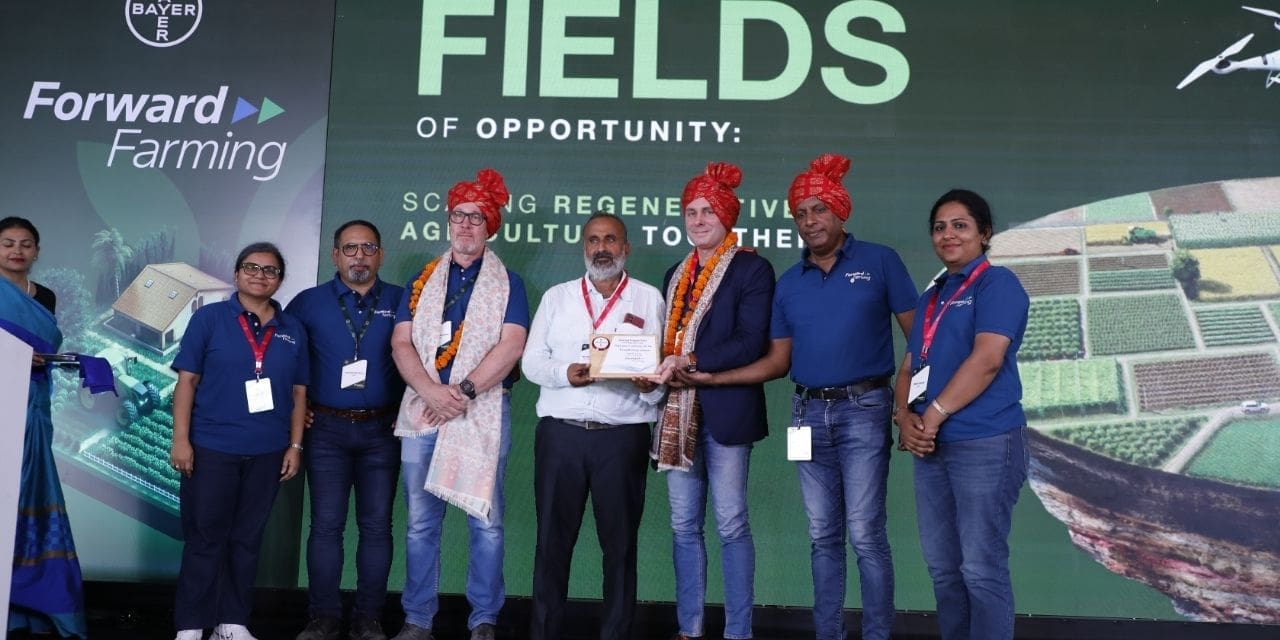- Advancing regenerative agriculture practices in Asia through the power of innovation
- The future of farming is happening in Panipat
- Forging a worldwide network to improve farmers’ livelihoods
Panipat/New Delhi, September 11, 2024: India has seen the inauguration of Bayer ForwardFarming, the company’s global project. Of the 29 ForwardFarms worldwide, this one is the newest. As a hub for sustainable farming methods, each ForwardFarm offers a forum for cooperation and knowledge exchange between farmers, academics, and other stakeholders. With an emphasis on sustainable rice growing, the Bayer ForwardFarm in India will showcase cutting-edge farming methods catered to the requirements of the 150 million smallholder farmers in the nation, supporting the shift towards regenerative agriculture.
At Bayer, Head of Sustainability & Strategic Engagements Natasha Santos said, “At the core of what we do is creating value for farmers.” We are thrilled to introduce Bayer ForwardFarming to India, a nation essential to the world’s food security. Our goal is to increase agricultural productivity and sustainability, which will increase food security for everybody, by empowering and supporting local farmers.
Direct Seeded Rice: A Comprehensive Approach to Regenerative Agriculture
Regenerative agriculture is, in Bayer’s opinion, an outcome-based agricultural production approach that prioritizes enhancing soil health. Along with reducing climate change, preserving or reviving biodiversity, saving water, and raising yields, enhancing resilience is a crucial goal. The ultimate goal of combining regenerative approaches is to enhance farmers’ and their communities’ social and economic well-being.
As the second-largest producer of rice in the world, India has a particularly high potential for regenerative agriculture in the rice industry. There has never been a greater urgent need to design a rice cultivation system that is both sustainable and profitable. Not only does climate change affect rice output, but it also causes it. The most complete and practical illustration of regenerative agriculture in operation is seen in Bayer’s Direct Seeded Rice (DSR) system. Nearly all of the regenerative agricultural outcomes that Bayer is concentrating on are covered by DSR, such as strengthening resistance to climate change, lowering water consumption, and improving soil health.
Farmers can cut their water use by up to 30–40%, their greenhouse gas emissions (GHG) by up to 45%, and their reliance on expensive, in-demand human labor by up to 40–50% by switching from transplanted puddled rice production to DSR. This might result in a potential decrease of 167 billion m³ of water use and 82 million mt CO2 yearly in GHG emissions for India alone by 2040.The DSR system’s implementation is completely consistent with Bayer’s regenerative agriculture strategy, which will allow farmers to increase production while simultaneously recovering more.
Bayer is offering farmers a customized crop system that incorporates top-notch seed, crop protection, digital tools, mechanization services, and agronomic solutions through its flagship initiative, DirectAcres. Public-private partnerships are driving these efforts, guaranteeing farmers can harvest a lucrative rice crop with a regenerative focus.
Through the DirectAcres program, 5,000 Indian farmers successfully planted 8,600 hectares of Direct Seeded Rice last year. By 2030, Bayer aims to assist more than a million smallholder farmers in India through its DirectAcres initiative. DirectAcres is also intended to be used in other Asian nations that grow rice, beginning with the Philippines.
Tailored Solutions for Indian Agriculture
“I am hopeful that the regenerative agricultural practices introduced through Bayer ForwardFarming will lead to significant improvements in my yield and livelihood while making farming more sustainable,” said Ved Prakash Saini, the first partner of Bayer ForwardFarm in India. Modern technology and methods such as Direct Seeded Rice offer the potential to improve crop health, use less water, and boost productivity. I’m excited to see these advantages for myself as we collaborate to create a robust and successful farming future.
The 18-hectare Bayer ForwardFarm in India is distinctive because it combines cutting-edge technologies with long-term solutions made especially for smallholder farmers. The farm incorporates the subsequent methodologies:
- Direct Seeded Rice (DSR) Cropping System: A sustainable alternative to traditional rice cultivation that minimizes soil disturbance, reduces water consumption, and enhances soil health.
- Innovative Weed Management: Advanced weed control strategies that reduce reliance on chemical herbicides while maintaining crop health.
- Customized Agronomy Systems: Tailored solutions for diverse climatic conditions and soil types, enhancing crop yields and soil health.
- Carbon Farming: Practices aimed at capturing and storing carbon in the soil, contributing to climate change mitigation and soil fertility improvement.
- Nutrition and Water Management: Advanced techniques to optimize nutrient use and water efficiency, boosting farm productivity while reducing environmental impact.
- Vermicompost and IoT: Use of vermicompost to enhance soil health, coupled with IoT technologies for precise monitoring and management of agricultural processes.
- Irrigation and Drone Technology: Innovative irrigation techniques and drone technology for optimized water use and precise crop management.
“At Bayer, we envision a regenerative farming future that restores and enhances the environment,” said Simon Wiebusch, President of Bayer South Asia. One aspect of it is the introduction of Bayer ForwardFarming in India. In order to increase production, enhance quality and yields, and protect the environment, we work with farmers to develop strategic alliances, new technologies and methods, and specialized solutions. Our goal is to enable farmers in India to use sustainable methods that would create a robust and prosperous agriculture industry.

